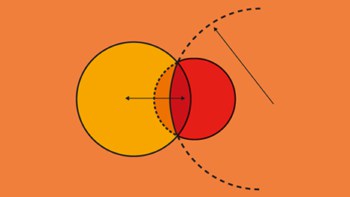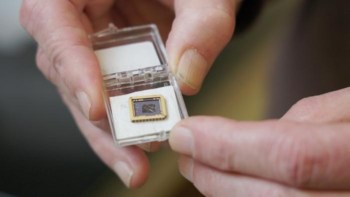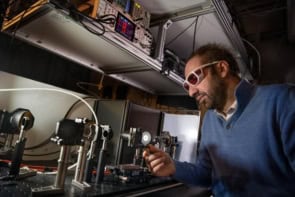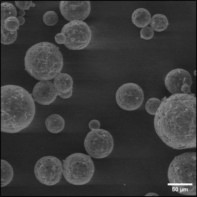The Nobel Prize for Chemistry has been jointly awarded to a physicist and two chemists for their revolutionary work in developing plastics that conduct electricity. Alan Heeger, a physicist at the University of California at Santa Barbara, Alan MacDiarmid of the University of Pennsylvania, and Hideki Shirakawa of the University of Tsukuba in Japan receive the award "for the discovery and development of conductive polymers". The prize of 9 million Swedish kroner - around £660 000 - will be shared equally between the three winners. Another physicist from Santa Barbara, Herbert Kroemer, shared the physics prize, which was announced earlier today.
Heeger, MacDiarmid and Shirakawa made their breakthrough in the late 1970s, when they discovered that the electrical conductivity of a certain form of polyacetylene increased by a factor of ten million when it was doped with iodine. Subsequent developments have produced diverse applications for the technology: conductive plastics are used in anti-static materials, filters for blocking the radiation produced by computer screens, and electronic windows that can switch light transmission on and off. Semiconducting polymers have also been incorporated into light-emitting diodes, solar cells and displays.
Future research on plastic conductors, which is closely linked to molecular electronics, is likely to yield ever-smaller electronic components – and an accompanying increase in the speed of our computers.



